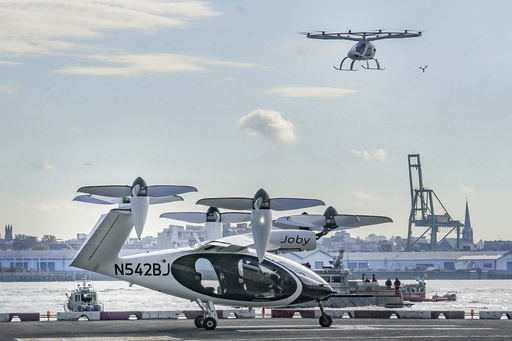Federal regulators have taken a significant step to advance the use of electric-powered air taxis by unveiling a final rule for their operation, which includes proposed training protocols for pilots.
Mike Whitaker, the Administrator of the Federal Aviation Administration (FAA), remarked that this new regulation identifies air taxis as a unique category of aircraft that is poised to enter the airspace alongside conventional airplanes and helicopters.
These innovative vehicles are designed to take off and land vertically, akin to helicopters, yet they operate similarly to fixed-wing aircraft during flight. Numerous companies are eager to enter the market with these air taxis; however, they have faced challenges due to undefined regulatory frameworks that govern their use.
Whitaker emphasized that safety is a primary concern for the FAA as it integrates these new air vehicles into the country’s aviation system. He pointed out that “powered-lift aircraft” represent the first new class of aircraft to emerge in nearly eight decades, following the introduction of helicopters, and this new rule is expected to pave the way for their broad adoption.
Proponents of air taxis advocate that they are a more environmentally friendly alternative to traditional passenger jets, which rely on fossil fuels. Nevertheless, limitations in current technology restrict their size, suggesting that their primary application will likely be in urban environments, with aspirations of transporting both passengers and cargo.
One notable company in this emerging industry is Joby Aviation, based in California, which has expressed support for the FAA’s regulatory move. CEO JoeBen Bevirt stated that the new rules will play a crucial role in ensuring that the United States maintains its position as a leader in the global pursuit of sustainable aviation technologies.
Airlines are viewing air taxis as a means to facilitate passenger transport to airports. For instance, in 2022, Delta Air Lines committed to investing $60 million in Joby, and recently, Toyota announced a substantial investment of $500 million. United Airlines has also shown interest, backing another Californian company, Archer Aviation, by placing an order for 200 aircraft, which could be valued at up to $1 billion, with an option for an additional $500 million.


